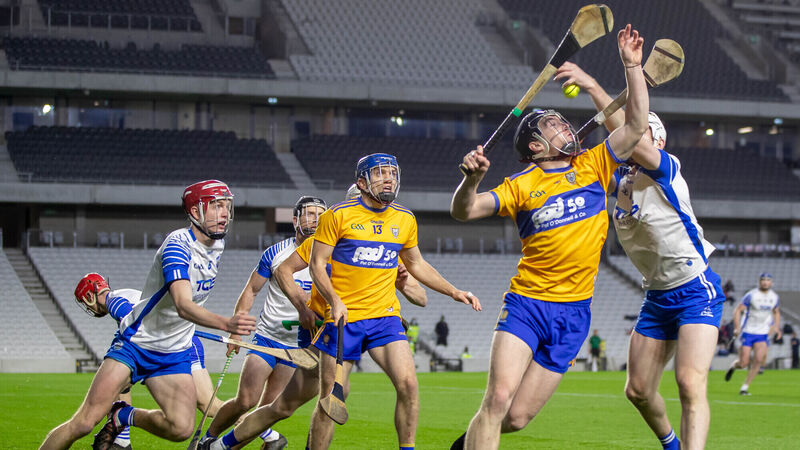Michael Moynihan: All-Ireland Championship gets the memory machine in action

Waterford’s Shane McNulty and Tony Kelly of Clare contest possession. Picture: INPHO/Morgan Treacy
Try from €1.50 / week
SUBSCRIBE
Waterford’s Shane McNulty and Tony Kelly of Clare contest possession. Picture: INPHO/Morgan Treacy
You know how the weekend went. Of course you do.
What we do here and online intersects with some version of Christopher Hitchens’ dismissal of sportswriting (“Matches ... previously played?”), so you’re probably aware of how the hurling games last Saturday panned out.
Already a subscriber? Sign in
You have reached your article limit.
Annual €130 €80
Best value
Monthly €12€6 / month
Introductory offers for new customers. Annual billed once for first year. Renews at €130. Monthly initial discount (first 3 months) billed monthly, then €12 a month. Ts&Cs apply.
Newsletter
Latest news from the world of sport, along with the best in opinion from our outstanding team of sports writers. and reporters
Newsletter
Latest news from the world of sport, along with the best in opinion from our outstanding team of sports writers. and reporters
Thursday, February 12, 2026 - 11:00 AM
Thursday, February 12, 2026 - 7:00 AM
Thursday, February 12, 2026 - 7:00 AM
© Examiner Echo Group Limited